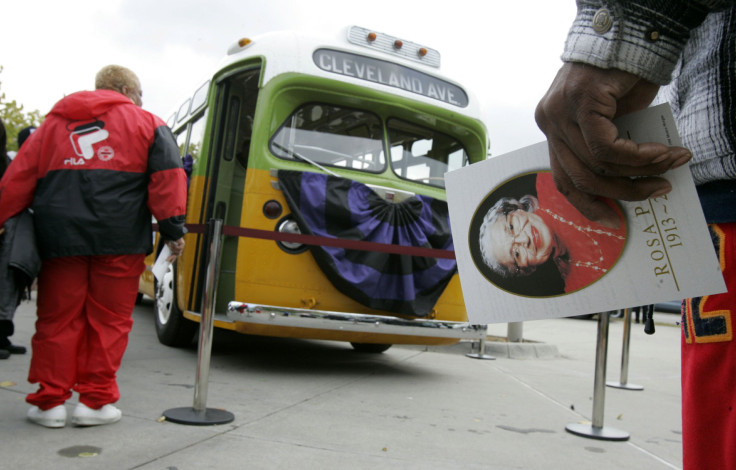Black History Month 2016: For Rosa Parks’ Birthday, Facts And Quotes About The Civil Rights Pioneer’s Life

If civil rights icon Rosa Parks were alive today, she might have supported the U.S. social justice movement known as Black Lives Matter, judging by her views of the struggle for racial equality. “Racism is still with us. But it is up to us to prepare our children for what they have to meet, and, hopefully, we shall overcome,” Parks, who famously inspired a public transportation boycott in the segregated South and died in 2005, was quoted decades after her history-making activism.
Parks would have turned 103 on Thursday. In death and in life, her legacy has been honored by politicians, activists and classroom teachers, held up as an example of principled opposition to inhumanity and inequality.
On Dec. 1, 1955, Parks refused to obey a Montgomery, Alabama, bus driver who ordered her to give up her seat in the “colored only” section of the bus to a white passenger, after the “whites only” section had filled up. When Parks refused, she was arrested for civil disobedience in violation of laws mandating racial segregation. The ordeal made an international icon out of Parks, who was awarded the prestigious Presidential Medal of Freedom later in life.
Part of the civil rights pioneer’s legacy has been preserved in the Library of Congress, an archive of important historical documents and cultural heirlooms. Last year, the library formally opened to researchers a collection of speeches, thousands of manuscripts and photographs documenting Parks’ life.
Below are some of Parks’ views in her own words:
“People always say that I didn’t give up my seat because I was tired, but that isn’t true. I was not tired physically, or no more tired than I usually was at the end of a working day. I was not old, although some people have an image of me as being old then. I was forty-two. No, the only tired I was, was tired of giving in.”
“I do the very best I can to look upon life with optimism and hope and looking forward to a better day, but I don’t think there is anything such as complete happiness. It pains me that there is still a lot of Klan activity and racism. I think when you say you’re happy, you have everything that you need and everything that you want, and nothing more to wish for. I haven’t reached that stage yet.”
“Each person must live their life as a model for others.”
© Copyright IBTimes 2024. All rights reserved.












